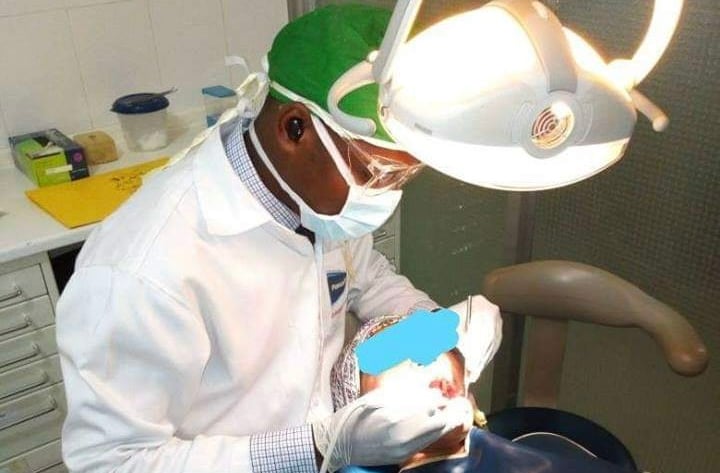The Oral Health Professionals Association of Ghana (OHPAG) has made a compelling appeal to the government to recruit registered dental surgery assistants, also known as dental nurses, who have remained unemployed for over five years. The association’s leadership has articulated that the ongoing delay in recruitment has had detrimental effects on Ghana’s oral healthcare system, resulting in significant stress on dental services across the nation. Proper staffing is crucial for maintaining the quality of care and ensuring that patients receive the necessary attention for their oral health needs. OHPAG highlights that these trained professionals, who received their education under the Ministry of Health’s aegis at the College of Health and Well-Being in Kintampo, are qualified to offer essential support in dental clinics, and their inclusion in the workforce is necessary for improving overall health outcomes.
OHPAG’s statement underscores the inequity faced by dental nurses compared to their peers in other areas of healthcare. Despite being fully trained and equipped to serve, these dental nurses have been left without job placements since 2019, while other healthcare professionals have received financial clearance for their postings as early as 2020 and as recent as 2024. Shaibu Issifu, OHPAG’s President, has deemed this situation a troubling reflection of the Ministry of Health’s treatment of the dental nursing workforce—a sentiment echoed throughout the association’s communication. The absence of these skilled workers has compelled many dental clinics to struggle with chronic staff shortages, often forcing facilities to rely on unlicensed individuals to assist with dental procedures, compromising both patient safety and the integrity of care.
The overreliance on unqualified personnel is particularly alarming as it violates Act 857 of 2012, which regulates dental practice in Ghana. This legal framework is meant to safeguard patient welfare and ensure that healthcare providers meet established standards of competency and professionalism. The impact of this staffing crisis is exacerbated by the high prevalence of oral health issues in Ghana; OHPAG reports that nearly half of the population suffers from oral diseases such as periodontal disease and dental caries. The lack of trained dental nurses significantly impedes the capacity of dental clinics to effectively address these widespread health problems. The association has pointed out that the continued unemployment of dental nurses, trained at the expense of taxpayer funds, raises serious ethical concerns regarding public health equity and service delivery.
In its recent statement, OHPAG has strongly advocated for the urgent need for the government to expedite necessary actions regarding the financial clearance for dental nurses. The association urges that these professionals be posted swiftly to fill the existing gaps in dental services. The call for immediate recruitment is rooted in the belief that integrating these trained individuals into the healthcare system will bolster efforts to meet the Sustainable Development Goal (SDG) 3, which strives for good health and well-being for all by 2030. Fulfilling this goal is critical, not only for enhancing oral health outcomes but also for reinforcing the broader aims of health equity and accessibility for the Ghanaian populace.
The need for action is underscored by the detrimental effects experienced by patients due to staff shortages. With the current pressure on dental clinics, many facilities cannot provide adequate care, leading to increased waiting times and reduced access for patients. By calling on the government to mobilize resources for the recruitment of dental nurses, OHPAG is asserting that the benefits extend beyond simply filling vacancies; it is an essential step toward fostering a more resilient healthcare system capable of meeting existing challenges. The lack of adequately staffed dental services poses a significant public health risk, as untreated oral conditions can lead to more severe health complications, further exacerbating the nation’s health crisis.
The broader implications of this recruitment initiative also align with the government’s broader healthcare objectives. The integration of qualified dental nurses is a key component in fostering a comprehensive approach to health service delivery in Ghana. By addressing the issues surrounding the recruitment and deployment of these professionals, the government would not only be addressing urgent staffing shortages but also affirming its commitment to invest in the healthcare workforce that can effectively tackle the prevalent oral health issues. OHPAG’s call highlights the necessity of a strategic approach to healthcare workforce planning, underscoring the notion that the health of the population is dependent on the availability and accessibility of qualified healthcare providers.
Ultimately, the recruitment of dental nurses in Ghana is not merely about fulfilling vacancies; it encapsulates a larger vision for a strengthened public health system, equitable access to care, and improved health outcomes for all citizens. As OHPAG continues to advocate for the urgent engagement of these professionals into the healthcare system, it sends a clear message on the importance of lawful and ethical practices within the medical profession. The pressing nature of this appeal reflects the challenges faced by the country’s oral health system and the immediate need for a collaborative effort between OHPAG and the government to rectify longstanding issues in workforce deployment. By heeding this call to action, the administration can demonstrate its commitment to advancing health care in Ghana, ensuring that no trained professional is left sidelined while the health needs of the populace remain unmet.


